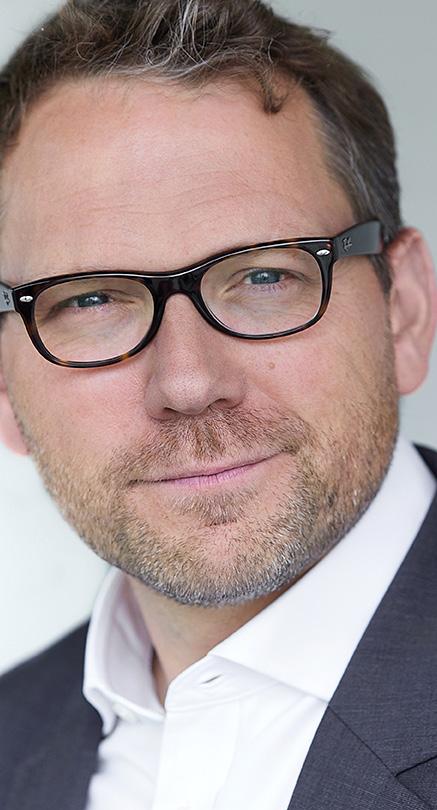
12 minute read
Review: Funding growth
WHAT ARE THE BEST FUNDING OPTIONS FOR NORTHERN BUSINESSES THAT ARE SCALING UP?
BBusiness Leader was the media partner for the recent Business Funding Show – which is the UK & EU’s leading event that connects funders with entrepreneurs. The event brought together thought leaders in the sector to discuss the future trends that are shaping the funding landscape.
The Business Funding Show kicked off with a panel debate that provided an overview of the funding environment for businesses. The panel was chaired by Matt Adey, Director & Senior Economist at British Business Bank, and included: Juliet Rogan Head of High Growth & Entrepreneurs at Barclays Peter Cowley Author and prolific entrepreneur and investor Umerah Akram Head of ELITE UK
Tim Mills Managing Partner at the Angel Co-Fund Jenny Tooth OBE CEO of UKBAA.
16 Matt Adey started the discussion by saying: “We’re seeing a big rise in alternative finance – with funding mechanisms such as asset-based landing increasing. The bank lending picture has been relatively flat and alternative finance companies have grown rapidly in order to support start-ups and scale-ups” The panel was then asked: WHAT ARE THE KEY DEVELOPMENTS THAT WILL SHAPE THE FUNDING ENVIRONMENT IN THE YEARS AHEAD? Jenny Tooth OBE: "Looking back at the last year there was some concern amongst investors about backing businesses and entrepreneurs, in what was a time of uncertainty.
"Now, with more political certainty, it appears the investor community is back and ready to start backing start-up and scale-up companies again. "I have also noticed that venture capital funding is going up and up the scale to fund bigger deals; and this has left angel investors to fill the space on the rung below." Tim Mills: "We now have a strengthened government which will be unveiling policies that will have a direct positive bearing on the investment community. "The opportunity is there and with interest rates not looking like they are going anywhere, investing in businesses remains a sound and attractive investment." Umerah Akram: "I recently read with interest a Beauhurst equity investment report which showed that in 2019, £12bn was raised in private deals, with more than 1,700 deals pushed over the line. "In contrast to this, the IPO market was quiet last year but there was still £30bn raised on the markets, with around £6bn or £7bn coming through actual IPOs. "This shows that there are clear benefits to being a listed business because you can raise significant amounts of investment to fund growth."
Jenny Tooth OBE Tim Mills Umerah Akram Peter Cowley Juliet Rogan
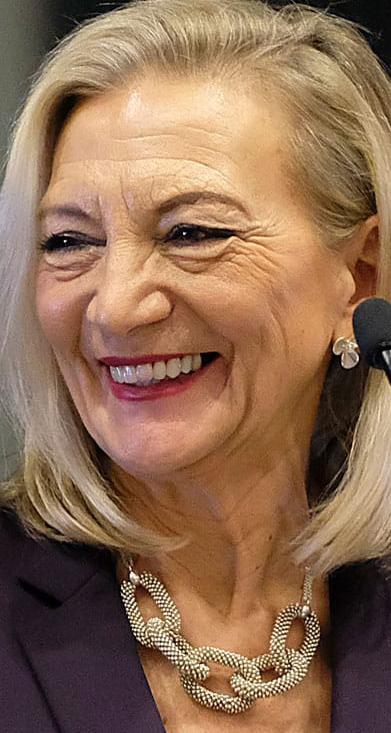
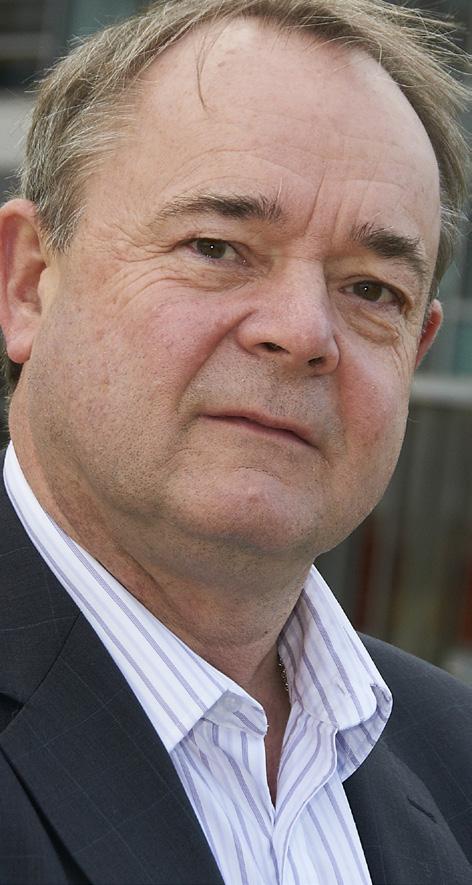

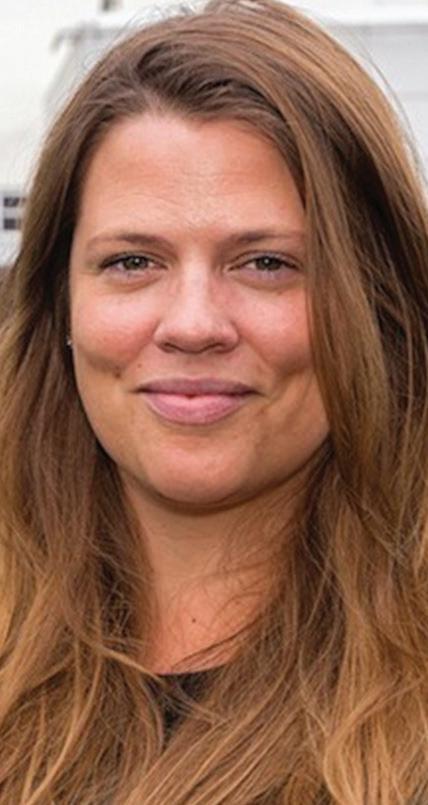
Peter Cowley: "Becoming an entrepreneur has almost become a career choice but this has meant that there are more people looking for money to fund their businesses; and the number of disappointed entrepreneurs who can’t raise finance is growing. "The point is that you can’t just assume there will be money available. The statistics reveal that only one out ten get the finance they need – so that’s lots of entrepreneurs who won’t get finance. "At the end of the day the best finance comes from customers – so product market fit is better than equity dilution." HOW MIGHT THE RECENT BREXIT MILESTONE AND THE SUBSEQUENT TRADE DEAL IMPACT THE FUNDING LANDSCAPE? Mills: "The negotiations around trade deals will be focused sector by sector and inevitably there will be winners and losers in any deal. As a fund, we have several fintech investments that are focused on Europe, so where we end up from a regulatory point of view regarding finance, will be vitally important. "You can already see that the grant funding landscape is changing because of our new relationship with the European Union." Cowley: "In terms of trade – If you look at my portfolio, many of the businesses I deal with don’t in the short term want to trade into Europe because it’s not easy to do so due to different tax regimes and business psychology. In this respect, it’s easier to trade in the USA. "This is the case for smaller businesses but of course as you grow you do want to consider international trade. It’s also worth noting that funding from the European Investment Bank is being replaced by funding from the British Business Bank, so this looks like its safe. "I don’t think the process of Brexit will make too negative a difference in regards to trade and funding, but I do feel that there will be an issue around access to talent and this will have an impact and will create difficulties." Juliet Rogan: "The £12bn of funding raised in the UK last year was more than Germany and France combined; and much of this was from US and Asian investors, so it’s still clearly a very important market and this should be a positive."
HOW DO ENTREPRENEURS ENSURE THEY HAVE THE CORRECT BLEND OF FINANCE? Rogan: "The current funding landscape provides a good opportunity for entrepreneurs to blend both debt and equity. This will be determined by the risk profile of the business and what stage in the business cycle it is. For example working capital can be funded by debt, whereas product development is more likely to be funded by equity or retained cashflows in the business." WHICH SECTORS ARE HOT GOING FORWARD REGARDING FUNDING?
Juliet Rogan Cowley: "One interesting trend I’m seeing is the conflation of data and healthcare – with big data being used to achieved health outcomes."
Tooth: "I’m going to bang the drum for female entrepreneurs as I’m seeing more and more of them and femtech is growing and growing."
AN ENTREPRENEUR’S LIFE
The Business Funding Show then turned its attention to what it takes to be an entrepreneur and explored the real-life challenges that founders must take on during the cycle of running a successful business. This panel brought together: Gonçalo De Vasconcelos Rnwl Kenneth Siber WeWork Labs Anthony Rose SeedLegals
GONCALO – CAN YOU EXPLAIN YOUR LATEST BUSINESS RENWL? WHAT DO YOU WANT IT TO BE KNOWN FOR? Goncalo De Vasconcelos: "Insurance is boring and nobody wants to deal with it and must spend time shopping around and responding to autorenewal letters. So, we are looking to do something about that and automate the process for people." WHAT ARE YOU DOING DIFFERENTLY WITH THIS BUSINESS?
De Vasconcelos: "You know it’s interesting to see how experience is so helpful because when I started my last business (Syndicate Room) I didn’t know the difference between a limited company and an LLP for example. It’s also been helpful that when people see my name in their inbox, they respond to my emails now."
ANTHONY – YOU’RE A SERIAL ENTREPRENEUR. WHY HAVE YOU DECIDED TO SET UP YET ANOTHER BUSINESS?
Anthony Rose: "Once you’re a founder it’s very difficult to work for anybody again. On leaving the BBC I sold a couple of firms and was tired of paying law firms for my legal work. This inspired me to set up SeedLegals and we’re just trying to make things easier for people."
IN YOUR OPINION ANTHONY – HOW QUICKLY SHOULD YOU RAISE EQUITY FINANCE?
Rose: "Our data shows that founders put an average of 26k of their own money into the businesses. Why? Because nobody will invest in a PowerPoint – you must build
something and show market fit before you can think about investment. So, the question then becomes– when do you start to think about pitching for other people’s money? "You can’t own more than a 100% of your business – so it makes sense to bring in debt or give away equity at some point but you need to remember that lenders only lend you money if you have a revenue steam. "The time to raise is when you think you’ll need more money than you can spend yourself. Or when you’ve reached product market fit." HOW IS BEST TO START A BUSINESS – AS A CO-FOUNDER OR A FOUNDER? De Vasconcelos: "I would say it’s easier with a co-founder, but you do have to split the equity. With a co-founder it’s much more fun and starting by yourself can be lonely." Kenneth Siber: "I would say co-founder as well but make sure you align expectations when you start and make sure you both want the same things." Rose: "I believe there are three roles needed for a successful business: 1. Domain expert – this is the doctor and the person with the passion to drive the business.
2. Who is going to build
it – this is the tech guy or CTO.
3. Mr or Mrs money – this is the person who is going to get it funded- usually the CEO. "If you’re a person that can cover all three roles, then that is great but it’s rare that one person has all these skills. This means that having a co-founder will make it more likely to have these skillsets and you can also have checks and balances on what you’re doing."
BIG THINKERS. NOT BIG SHOTS.
As one of the largest firms of accountants and business advisers in the South West, we love to chew over the challenges facing some of the fastest-growing, most ambitious companies in the region. We’ve just opened a new office in Bristol, so if you like the sound of a truly local, partner-led team with all the excellence and expertise of a big city firm (minus a big city attitude), let’s talk.

0330 134 4870 (or call straight through to our new Bristol office on 0117 403 9800) www.pkf-francisclark.co.uk
ENTREPRENEURS ARE GETTING YOUNGER AND THERE HAS BEEN 700% RISE IN TEENAGERS BEING ENTREPRENEURS, WITH ONLY ONE IN FOUR TEENAGERS NOW HAVING A PART-TIME JOB. CAN THEY HANDLE THE MONEY SIDE THOUGH, WHEN IT COMES TO BEING IN BUSINESS? Siber: "I wonder if it’s the case that people are starting companies much earlier because I saw some statistics that showed that in terms of returns, the perfect age to start a business is at the age of 48. "It showed that the maximum return for investor capital is a 48-year-old founder with some previous experience in the sector they are launching the business in. "On the question of can younger people handle the capital at a young age? Some can and come can’t. It’s tricky if you’re very young to handle this – you’re not just given a sack of money because it also often comes with the message that you’re the best thing since sliced bread and to go out and kill the world." WHERE ARE ENTREPRENEURS COMING TO YOU AND SAYING THEY NEED MOST HELP? Siber: "The common challenges are around skills and access to finance, but they will of course be different at different stages in the business – depending at where you are at in your cycle. What we try to do is bring people together at different stages."
Gonçalo De Vasconcelos Anthony RoseKenneth Siber

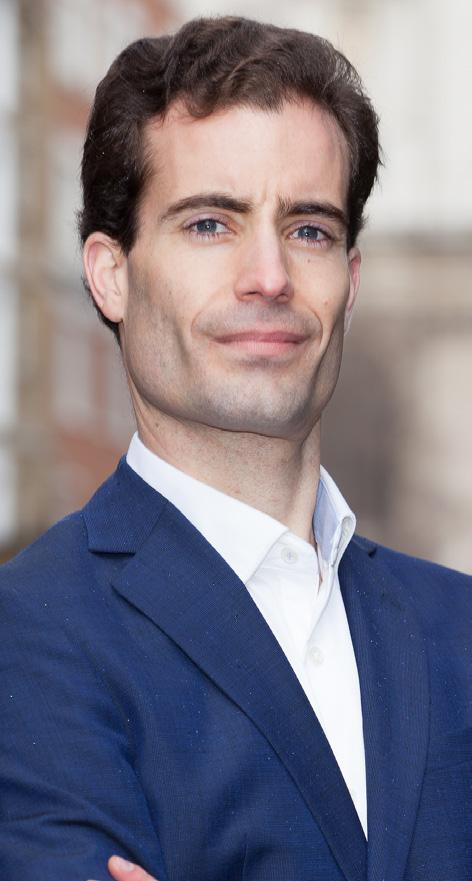

WHAT ARE THE THREE ELEMENTS YOU NEED TO GET RIGHT TO RAISE YOUR FIRST MILLION? Rose: "You need to run it like a military operation – I talk to many founders and when you hear things like ‘my co-founder is going to be giving up their job to focus on this full-time’ – no! There are lots of businesses that investors can support, so you need to ensure you’re making the proposition as attractive as possible. "You need to have such a single-minded focus on your goal and how you are going to get there; that it becomes attractive to an investor.
"People think the key
problem is to build stuff, but the actual problem is finding a market for it and somebody to buy it. "All too often people spend the investment money building acres of stuff, but they don’t identify if there is a market for it." Siber: "Investors want to see somebody that will literally break down walls to get this product up and running and drive it to become a success. It’s that passion and drive that inspires investors to lend."
WHEN IS THE RIGHT TIME FOR A FOUNDER TO STEP ASIDE AND LET SOMEBODY ELSE TAKE CONTROL OF THE BUSINESS?
Siber: "I remember one of our first investors asking an insightful question, which was: “do we want to be rich or a king?”
"This comes from metrics that look at control on the one axis and reaching maximum potential on the other axis. It is rare that you retain all the control and reach maximum potential – this is your Google or Facebook. Typically, you don’t get both.
"If you take all the control, you’ll never realise the potential, but you will be the king. You must ask yourself – what do you want to be and how does this sit with your role as a founder? Control is a bit of an illusion because to be successful you do have to give it up."
De Vasconcelos: "Entrepreneurs obsess about it too much – often they may not be the best person to run the business. For example, when a business becomes successful it can become very operational and letting somebody else run the business and you moving on can be good, as it means you can then start another business."
Keep track of your business at the click of a button with cloud accounting

Real-time data at your finger tips
Cloud accounting software gives you an up-to-date snapshot of your business’ financial position on the go.
Having automatic links with your bank allows you to keep track of your business’ balance sheet in real time and helps you make smarter, more responsive decisions.
So why not soar into the cloud and help your business grow? There’s far more freedom to help you succeed!
As a busy business, we needed to be able to find a way of processing invoices at our fingertips and check payments quickly and efficiently. Cloud accounting allows us to do this and has benefited our business’ productivity massively. Director of a Dental Practice
PREFERRED PARTNERS FOR ...











